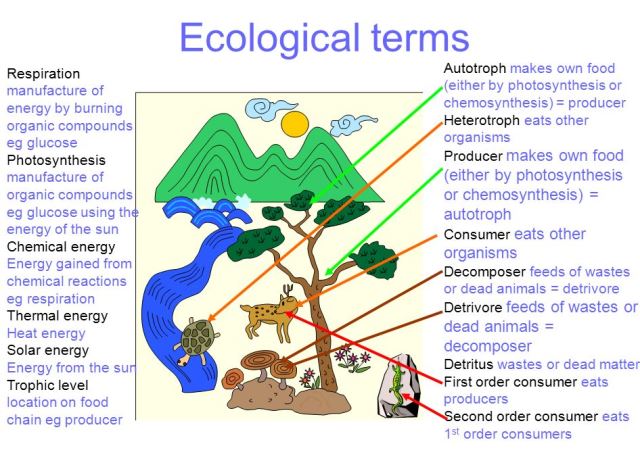
USING ECOLOGICAL TERMS IN UZBEK AND ENGLISH, PROBLEMS IN TRANSLATION
Odina Khoshimova,
Master student of NamSU
Abstract
Getting to know terms of translation is essential part of the communication of the job. Merely, finding an appropriate translation of the term and employing it in the proper circumstances are fundamental questions in using the terms among the languages. The main purpose of the article is to tackle the problems of translating ecological terms from English into Uzbek. As ecological terms are the leading elements of ecological texts and some terms of ecology are diversified from various sources like eco-dictionaries. Hence, the result emphasizes to present different variations of translating of the terms from English into Uzbek.
Key words: equivalent response, term, terminologist, ecology, translation, culture, ecological connection, relationship, neologism, non-equivalence.
Today it is common knowledge that translation is the communication of meaning from one language (the source) to another language (the target). Translation is a broad concept rather than other language aspects. Apart from interpretation, translation has presented written information, at the same time translation has played a major part in communication, because it is not only about languages but also cultures. As Nida states, “the role of a translator is to facilitate the transfer of the message, meaning, and cultural elements from one language into another and create an equivalent response to the receivers”.
‘In the translation of literary works, magazines or newspaper, it is necessary to have wide range of general knowledge about culture between source language and target language. Generally, every language is unique and there are always changes. Words, sentences and grammar are continuously changed and update. (Ni Nyoman Ayu Oktiana Cipta Dewi, 2)
According to Argeg ‘without translation modern technology could never have been transferred between nations. Translation can be applied to all fields of language including legal, religious, literary language etc.’ Hereby it should be taken into consideration that among these fields, scientific or can be said, ecological translation encompasses the specialties which are relevant to ecology.
Cronin claims that ‘ecology has become a central question governing the survival and sustainability of human societies, cultures and languages’. Today we need ecological translations because of the various factors of todays’ demand such as he also says ‘the radically changed ecological circumstances of humanity, the ecological connection between translation and one of the significant means of species survival: food, translation figures in our relationship or lack of relationship with the numerous other species that inhabit the planet; the position of technology and translation in an era of ecological vulnerability; the role of literature, particularly travel writing, in teasing out the relationship between ecology, travel and translation’ (Cronin 2017) and etc.
The way of expressing ecological concepts and content is generally demanding and severe as it requires accuracy, knowledge and comprehending of the concepts behind the terms. The translation of ecology has its own characteristic terminology, so difficulties can arise from that. Terms are the key concept in the translation of any kind of scientific text.
One of the noteworthy challenge of this way can be taken into consideration that is ‘while the understanding of the source text terminology is an important factor in the process of translating, the coining of the terms’ target language counterparts is of equal, if not, greater importance. In translating … terms, one is often faced with the problem of neologism and non-equivalence. Such problems arise due to the rapid progress of, and the advances made in, science and ecology around the world which make it difficult for terminologists and specialists to keep pace with the huge numbers of terms that continually enter the language of science, which is usually English’. (Al-Mani, 2000).
Argeg assumes that one of the most noteworthy issues in scientific translation is how to achieve the highest degree of precision possible in the use of words and to transfer the information contained in the source language text into the target language text without any loss of the original meaning. (2015)
Another problem which arises with the use of a one-to-one parallel corpus (i.e. containing only one version of translation in the target language) is that translation only represents one individual’s introspection, albeit contextually and contextually informed. (Malmkjer, 1998). One possible way to overcome this problem, as suggested in Malmkjer, is to include as many versions of a translation of the same source text as possible in a parallel corpus. While this solution is certainly of benefit to translation studies, it makes the task of building parallel corpora much more difficult. It also reduces the range of data one may include in a parallel corpus, as many translated texts are only translated once. It is typically only literary works which have multiple translations of the same work available. These works tend to be non-contemporary and the different versions of the translation are usually spaced apart, thus making the comparison of these versions problematic. (Tony McEnery, et. al. 92).
Steps should be taken in order to overcome is using borrowings. Borrowing a term is taking a word or expression straight from another language, without using its translated version. If a term does not exist in the target language, this procedure is normally utilized, or when the translator tries to get some stylistic or exotic effect. It can be “pure”, if there is no change of any kind in the foreign term (ecology, neutron, ecosystem, ozone, etc.), or “naturalized”, if the word has some change in the spelling, and perhaps some morphological or phonetic adaptation (as in atmosphere ‘atmosfera’, bacteria ‘bakteriya’, cyclone ‘siklon’, metabolism ‘metabalizm’, etc.). ‘If there is no equivalent in the target language, the translator could give an explanation for the term. This explanation would depend on his/her understanding of the subject matter’. (Argeg, 2015)
Many scholars recommend the terms of foreign word, foreignism, Anglicism, Germanism and etc. when referring to pure borrowings (that have not been fully assimilated into the target language system), and utilization borrowings or loans when the words are naturalized, the distinction of being when the term has been incorporated and how it has been adapted to the target language. In any case, borrowings are one of the main possibilities of enriching a language, when translating texts with a great amount of cultural terms; albeit, we should be cautious, unless we want to claim a certain local color or exoticism.
With reference to practical translation studies, as corpora can be used to raise linguistic and cultural awareness in general, they provide a useful and effective reference tool and a workbench for translators and trainees. (Hunston 2002). In this respect even a monolingual corpus is helpful. (Tony McEnery, et. al, 94). For instance, Bowker found that corpus-aided translations were of a higher quality with respect to subject field understanding, correct term choice and idiomatic expressions than those undertaken using conventional resources.
While monolingual and comparable corpora are of use to translation, it is difficult to generate ‘possible hypotheses as to translations’ with such data (Aston, 1999). As Corpus-Based Language Studies demonstrates that verifying concordances is both time-consuming and error prone, which entails a loss of productivity. Parallel corpora, in contrast, provide greater certainty as to the equivalence expressions’, and in combination with suitable tools, they enable users to ‘locate as to all occurrences of any expression along with the corresponding sentences in the other language’. As such parallel corpora can help translators and trainees to achieve improved precision with respect to terminology and phraseology and have been strongly recommended for these reasons (Williams, 1996). A special use of a parallel corpus with one source text and many translations is that it can offer a systematic translation strategy for linguistic structures which have no direct equivalents in the target language. (Tony McEnery, et al,. 94).
To put it in a nutshell, I pen down saying that above-mentioned ways has shed light on the translation of ecological terms as a problem that causes real translation challenges. It attempted to focus on the translation of the terms in general. Furthermore, conducting ideas in the above-proposed areas of the issue would contribute to overcome a major translation problem, that is the translation of eco-terms, and it means it does need to be investigated again particularly by any researchers who has willing of contributing to the development of English-Uzbek eco-translation in general.
References:
- ARGEG, GARSA, MOUSBAH (2015) The Problems of Translating Medical Terms from English into Arabic , Durham theses, Durham University. Available at Durham E-Theses Online:
- Aston, G. 1999. ‘Corpus use and learning to translate’. Textus 12:289-314.URL: http://home.sslmit.unibo.it/~guy/textus.htm.
- Al-Ma’ni, M. (2000). The Problematics of Technical Translation into Arabic: The Case of the Royal Air Force of Oman. Unpublished Ph.D. thesis. Salford: Salford University.
- Bowker,L.1998. ‘Using specialized native-language’.
- Hunston,S.2002.Corpora in Applied Linguistics.Cambridge:Cambridge University Press.
- Micheal Cronin, (2017) Eco-translation: Translation and Ecology in the Age of the Anthropocene.
- Malmkjar, K.1998. ‘love thy neighbor: will parallel corpora endear linguists to translators?’ Meta43/4. URL: www.erudit.org/revue/meta/1998/v43/n4/003545ar.pdf
- Nida, E. (1964). Towards a Science of Translating. Leiden: E.J.Brill.
- Ni Nyoman Ayu Oktiana Cipta Dewi. THE Translation of Ecological Terms with Reference to Senior High School Textbook Entitled Biology Bilingual. Pp-2.
- Tony McEnery, Richard Xiao and Yukio Tono, 2006, Corpus-Based Language Studies an advanced resource book, by Routledge, 2 Park Square, Milton Park, Abington.


